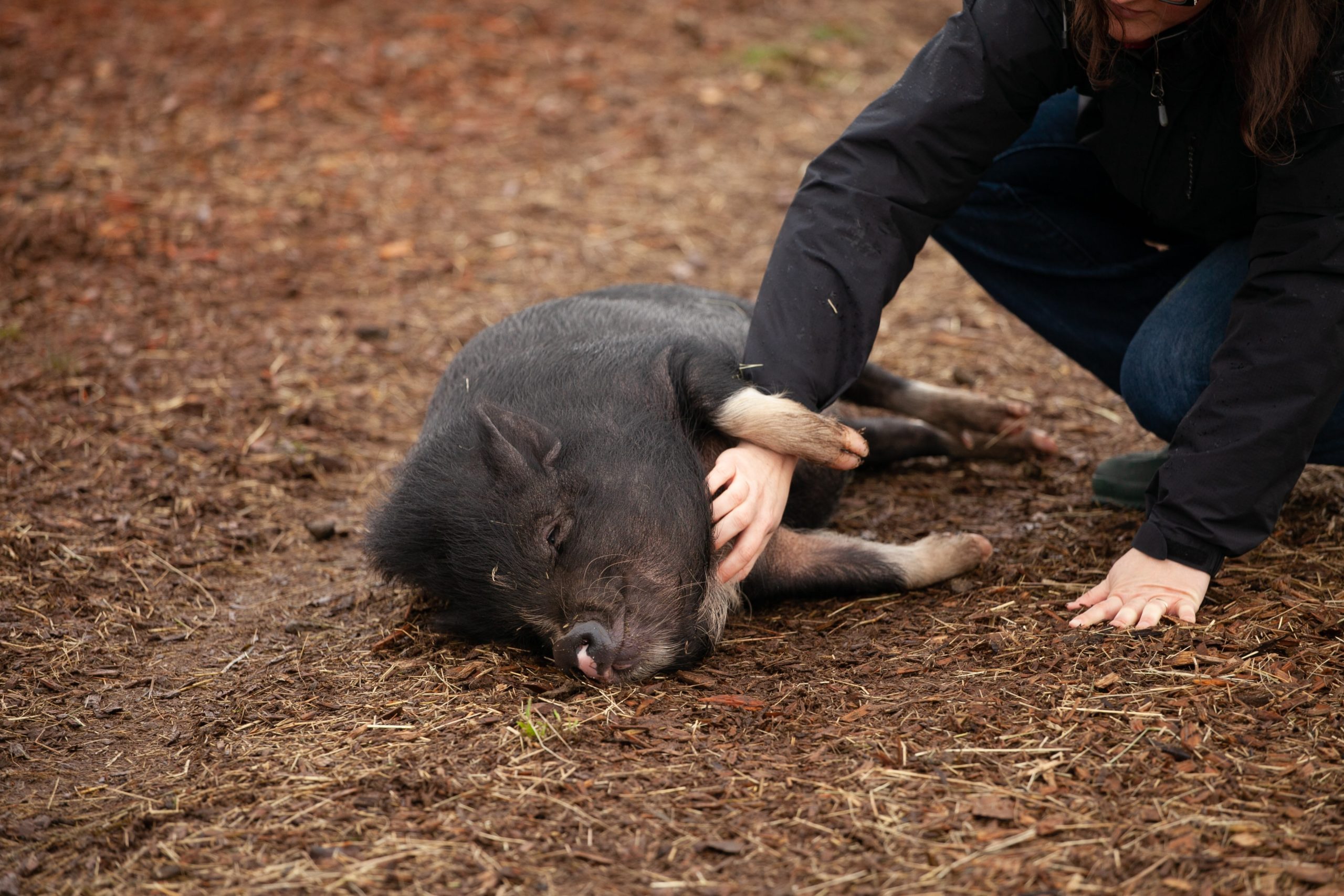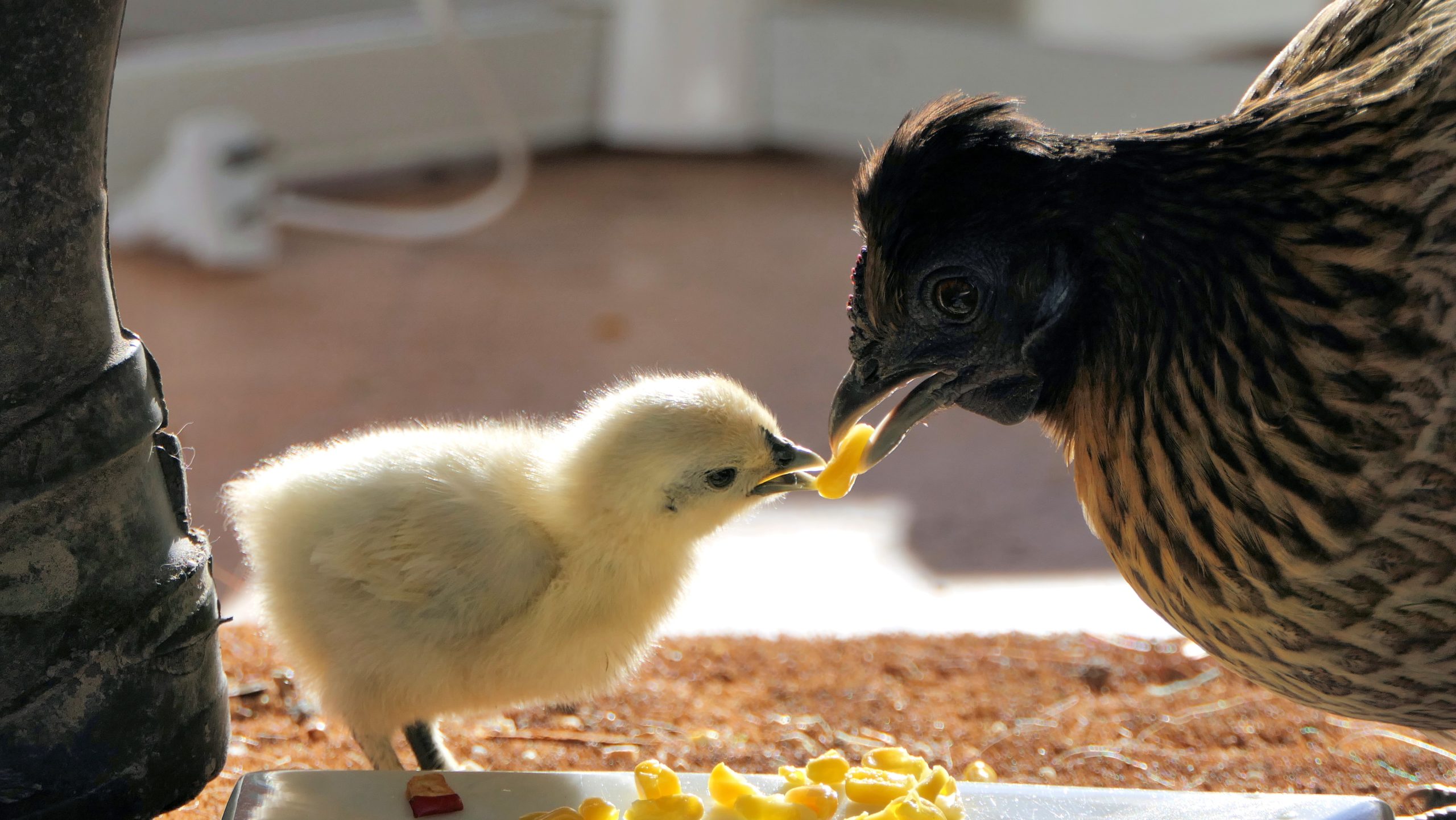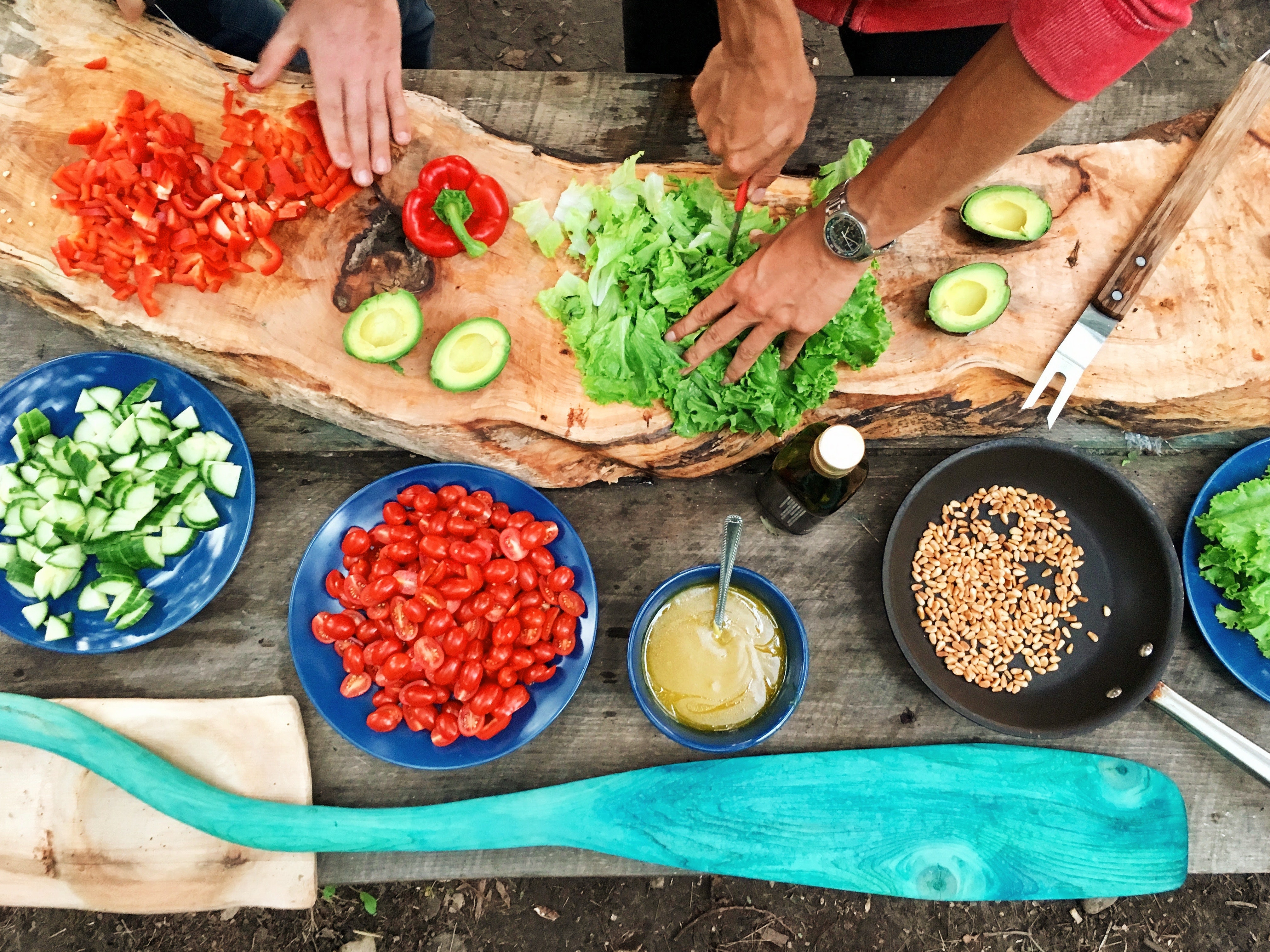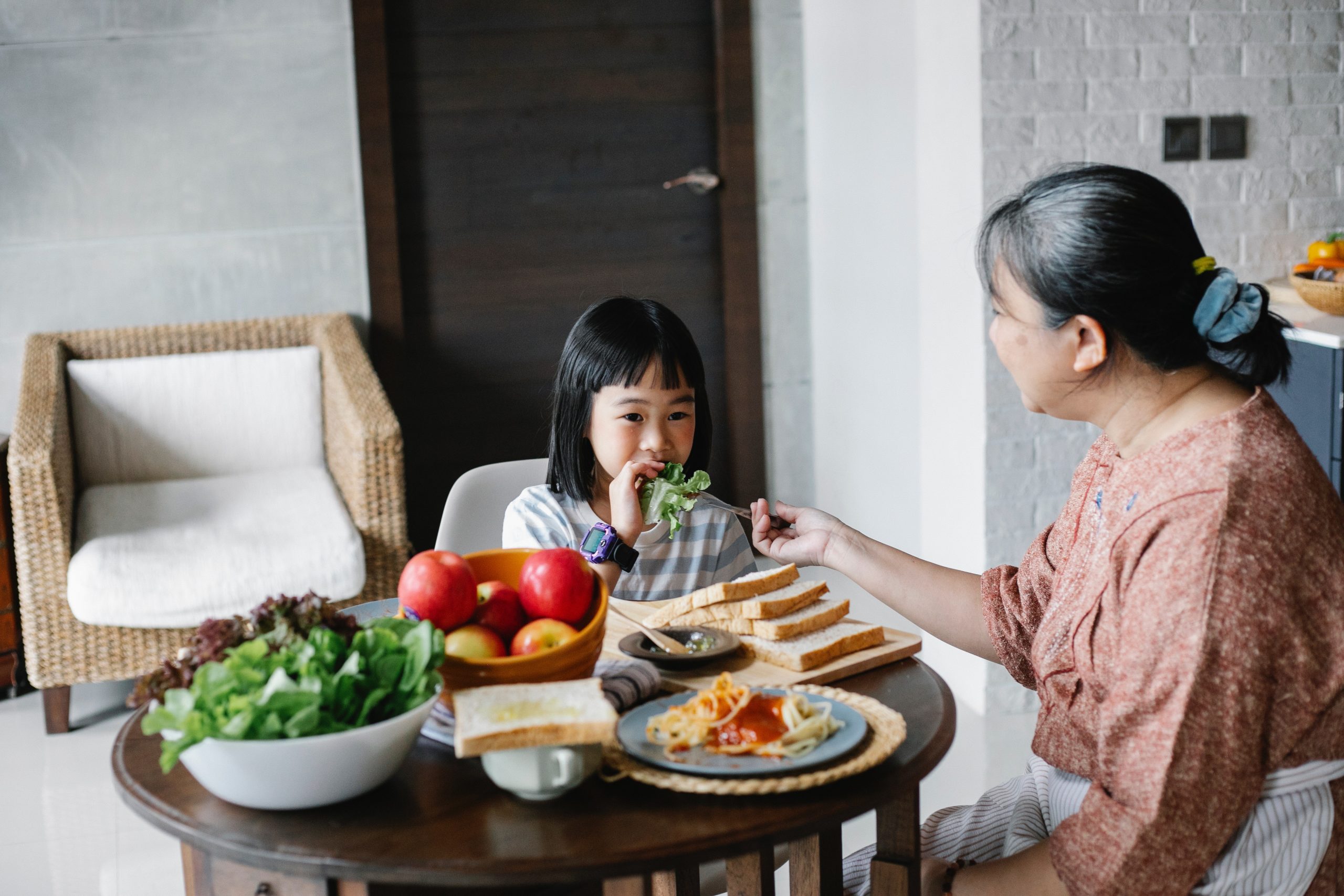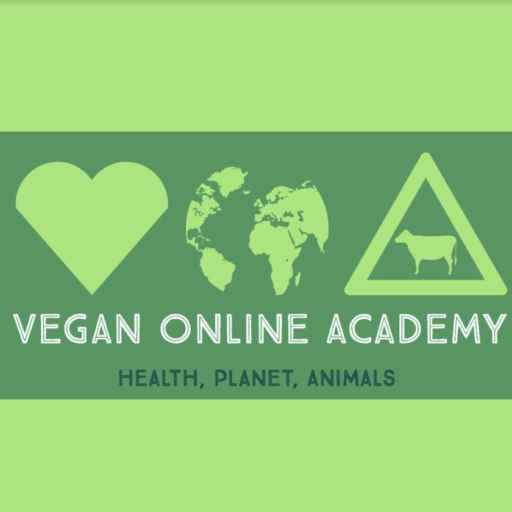Bloating is a common side-effect that some people experience when they first switch over to a vegan diet. The good news is that it is normally temporary and there are several things that you can do to reduce the problem.
When changing to a vegan diet bloating is normally caused by the sudden change from a very unhealthy low-fiber standard western diet – focused on meat and/or dairy consumption -over to a healthy and nutritious high-fiber diet focused on healthy whole grains, vegetables, and beans.
What Causes Bloating?
A high-fiber diet is much more beneficial and is definitely healthier than the alternative, bacteria-infested and fat-laden, meat and dairy focussed diet. However, digesting all of the grains and vegetables can feel uncomfortable for some people to begin with.
This is because our guts need time to adapt to digesting all that fiber and healthy food. Our gut flora can often be severely depleted from decades of eating meat and/or dairy, and this bacterial powerhouse of ours needs time to adjust and recharge itself.
Legumes, grains, and vegetables are broken down differently in our guts to meat and dairy, and so our bodies will take a while to get used to the new diet and processing this new, healthier intake of food.
This can lead some new vegans to feel very bloated after meals and to experience an increase in gas-production. But don’t worry, these symptoms are usually just temporary and are not an indication of how life will be from now on.
There are many things that you can do to help reduce these initial increase in bloating.
Use Mock Meats
Firstly, you can try using mock-meats to sub for meat and thereby gently increasing the amount of whole food grains and beans in your diet over several weeks. This can avoid the shock to the system effect of suddenly switching to 100% whole food plant-based diet overnight, while at the same time allowing you to cut out all of that unhealthy animal products.
What this looks like in practice is enabling you to eat roughly the same food as before, i.e. burgers, ‘chicken’ nuggets, spaghetti bolognese and so on, but just the plant-based alternatives such as Beyond Meat, or using Quorn, or Gardein products. You can then focus on gradually upping your intake of vegetables, whole grains, and beans over several weeks while still being 100% vegan and cutting out all of the heart-attack causing animal fats and dairy products. This means that your gut bacteria don’t get such a shock by switching from animal products to a high-fiber diet overnight.
For example, for week one you could focus on eating porridge oats for breakfast, with a Beyond Burger or similar for lunch, followed by Gardein spaghetti Bolognese, or similar, with some broccoli for dinner.
The next week, you could work up to porridge for breakfast, with a hummus salad wrap or similar for lunch, followed by Quorn vegan nuggets, or similar, for dinner.
Finally on the third week you could be up to eating primarily a whole food plant-based diet, with porridge for breakfast, a bean burrito for lunch, followed by a hearty vegetable soup and open salad sandwich for dinner.
And from there you are off and able to add more and more whole grains, leafy greens and vegetables to your diet.
Drink Water, Peppermint Tea, & Slippery Elm Tea
Another highly beneficial thing to do when changing over to a whole food, plant-based diet is to focus on drinking lots of water. Fiber, grains, and beans need lots of water in order to break them down and keep things flushing through your system.
To give you an idea, over the course of a day I will drink: one large mug of decaf tea, two large mugs of peppermint tea, a cup of coffee, several small glasses of water, and one to two cans of sparkling water. I am also getting quite a bit of water from the food I am eating, such as the apple I have for snack or the veggie soup I have for dinner.
Peppermint tea is really beneficial in terms of helping you to digest food. I enjoy drinking peppermint tea throughout the day.
Another excellent tea to drink when you are first switching over to a plant-based diet is Slippery Elm. Many people find it excellent for dealing with bloating and gas when they first start eating a high-fiber diet. It is a fairly tasteless tea that you can buy in health food shops or online from Amazon.
Notice Which Foods You May Be Sensitive To
You may find that even after months of eating a whole food, plant-based diet that everything is fine except for when you eat a particular food. For me that food is Wheat Vital Gluten. I find that whenever I eat it, it sets like a rock in my intestines and is very uncomfortable. So, I just avoid that particular food which is mainly found in seitan, a type of traditional plant-based protein and meat replacement. I know plenty of vegans who love seitan and other mock meats made from wheat vital gluten and eat them with no problems and find it a tasty alternative (which it is). It just doesn’t work for me, so I avoid it and all is well.
A Daily Walk to Reduce Bloating
Walking every evening is really helpful in reducing bloating. Ideally, you are able to eat dinner and let it ‘go down’ for an hour or so. By which point a plant-based meal will have left your stomach and be making its way through your intestines. A well-paced walk that sees you walking fast enough to make you breath a little quicker, but not to the point where you are running, is ideal for easing abdominal discomfort. It is so much better to go for an hour-long walk each evening than to leave your food to sit in your gut while you watch T.V.
This means that, in an ideal world, you are eating dinner fairly early. I usually aim for 5.30pm, so that I can be out walking from 6.30pm to 7.30pm. Not having an afternoon snacks really aides in this plan to have an early evening meal. Having something to eat at 3pm takes the edge off of your hunger, meaning that you can go longer until your main meal at night. But if you keep yourself busy and don’t have that 3pm snack you will be famished by 5.30pm and ready for your evening meal nice and early.
If you are the type of person who just loves to eat later, perhaps you are also happy to be out walking later. It just doesn’t work that way for me, but everyone will find what works for them. A daily walk, no matter when you can fit it in, is extremely beneficial in terms of reducing bloating and gas.
When to Talk To Your Doctor
Talking to your doctor is always a good idea if you are worried by anything to do with your digestive system. Ideally your doctor is plant-based, or has experience of working with patients on a plant-based diet. However, don’t be surprised if your doctor is neither of these things.
As well as your current doctor, I would also recommend doing your own research and watching the series of YouTube videos that GojiMan, a qualified nutritionist and plant-based expert, provides online. GojiMan has a range of information suitable for the relatively small number of people following a vegan diet who experience ongoing gut problems caused by underlying medical issues – not the vegan diet. Check out his website at: gojimannutrition.com
For the majority of people, experiencing gas and bloating will be a short-term issue that goes away and subsides by itself over the coming weeks and months, as their body adapts to this new, healthy way of eating.
Remember that whole grains, legumes such as beans and lentils, and green leafy vegetables like cabbage, kale, and broccoli, are packed full of protein, antioxidants, vitamins and even minerals such as iron and calcium. They are also packed full of fiber which is what keeps everything moving, and it is these two things combined is what makes a plant-based diet such a force of nutrition and means that vegans are amongst the healthiest people alive.

